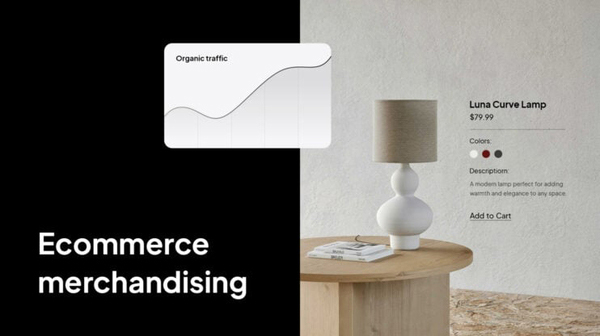Getting Started with Roofing Website Design
Roofing Website Design Checklist
Roofing Website Design
In today’s digital age, having a strong online presence is crucial for businesses of all sizes. One of the simplest and most effective ways to establish an online presence is by building a one pager website. A one pager website is a single webpage that provides all the necessary information about your business, products, or services in a concise and visually appealing manner. In this article, we will discuss the benefits of having a one pager website and provide a step-by-step guide on how to build one.

The Ultimate Guide to Roofing Website Design
Roofing Website Design
Website builders are online tools that allow users to create and customize their own websites without the need for coding or design experience. These platforms offer a range of templates, drag-and-drop features, and other tools that make it easy for even the most technologically-challenged individuals to create a professional-looking website. For small businesses, website builders offer a cost-effective and user-friendly solution to establishing an online presence.
There are many website builders available on the market, each with its own unique features and pricing options. When choosing a website builder for your small business, it’s important to consider factors such as ease of use, customization options, mobile responsiveness, and customer support. To help you make an informed decision, here are some of the top website builders for small businesses:
1. Wix: Wix is one of the most popular website builders on the market, known for its user-friendly interface and extensive customization options. With Wix, small business owners can choose from hundreds of templates, customize their site with drag-and-drop tools, and even add features such as e-commerce functionality and contact forms. Wix also offers excellent customer support and a mobile-responsive design, making it a great option for small businesses looking to establish a professional online presence.
2. Squarespace: Squarespace is another website builder that is ideal for small businesses looking for a sleek and modern design. Squarespace offers a range of professionally-designed templates that can be easily customized to suit your brand. The platform also includes features such as e-commerce functionality, SEO tools, and analytics tracking. While Squarespace may have a steeper learning curve than some other website builders, its beautiful design options make it worth the investment for small businesses looking to make a strong visual impression online.
3. Shopify: If your small business focuses on e-commerce, Shopify is a top choice for building an online store. Shopify offers a range of customizable templates, payment processing options, and inventory management tools to help small businesses succeed in the online marketplace. With Shopify, small business owners can easily set up their store, add products, and track sales all in one platform. While Shopify does have a monthly fee, the robust features and support make it a worthwhile investment for small businesses looking to sell products online.
4. WordPress: WordPress is a popular website builder that is widely used by small businesses and bloggers alike. With WordPress, users have access to thousands of themes and plugins that can help customize their site to fit their needs. While WordPress does have a steeper learning curve than some other website builders, its flexibility and scalability make it a powerful tool for small businesses looking to grow their online presence. WordPress also offers excellent SEO capabilities, making it a great choice for businesses looking to increase their visibility in search engine results.
5. Weebly: Weebly is an affordable website builder that is perfect for small businesses on a budget. Weebly offers a range of customizable templates, drag-and-drop tools, and e-commerce functionality to help small businesses create a professional online presence. Weebly also offers built-in SEO tools, analytics tracking, and mobile responsiveness, making it a great all-in-one solution for small businesses looking to launch their website quickly and easily.
As search engines like Google continue to prioritize high-quality, relevant content in their search results, businesses that invest in content marketing SEO are more likely to see success in their online marketing efforts. By creating content that is optimized for specific keywords and provides value to their target audience, businesses can increase their visibility in search engine results pages (SERPs) and attract more potential customers to their websites.
Here are some key tips for effectively implementing content marketing SEO strategies:
1. Conduct keyword research: Before creating any content, it’s important to conduct thorough keyword research to identify the most relevant and high-traffic keywords for your industry. By targeting the right keywords in your content, you can improve your chances of ranking higher in search results and attracting more organic traffic to your website.
2. Create high-quality, engaging content: Content marketing SEO is not just about stuffing keywords into your content – it’s about creating valuable, engaging content that provides value to your target audience. By creating content that addresses the needs and interests of your audience, you can increase engagement, build trust, and improve your chances of ranking higher in search results.
3. Optimize your content for SEO: Once you’ve created your content, it’s important to optimize it for search engines. This includes optimizing your title tags, meta descriptions, headers, and image alt text with relevant keywords, as well as incorporating internal and external links to other relevant pages on your website.
4. Focus on quality over quantity: While it’s important to consistently produce new content for your website, quality should always take precedence over quantity. By focusing on creating high-quality, relevant content that provides value to your audience, you can improve your chances of ranking higher in search results and attracting more organic traffic to your website.
5. Monitor and analyze your results: Lastly, it’s important to regularly monitor and analyze the performance of your content marketing SEO efforts. By tracking key metrics such as organic traffic, keyword rankings, and engagement rates, you can identify what’s working well and make adjustments to your strategy as needed.

Getting Started with Roofing Website Design
Roofing Website Design
In conclusion, no code web builders have transformed the web development industry by providing a user-friendly, cost-effective, and efficient solution for building customized websites. This innovative technology has empowered individuals and businesses of all sizes to create professional-looking websites without the need for coding skills or technical expertise. No code web builders offer a wide range of benefits, including time and cost savings, flexibility and customization, user-friendliness, and ease of maintenance. As the demand for no code web builders continues to rise, it is clear that this technology will play a key role in shaping the future of web development.


